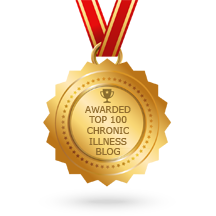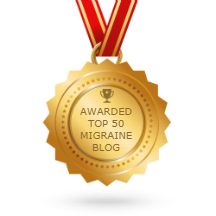The Art of Positivity and Asking for Help
A lot of people ask me how I can be so happy when my life always feels like such a mess medically. Something is always wrong, I always seem to be fighting for something and on top of that my personal life feels like it is always changing, for better or for worse. My mom jokingly calls me Pollyanna because I seem to have such an optimistic view of life for most things. I always say that if I got stuck on the negative parts of my life, I would be constantly depressed. That's not to say that I don't have dark moments, because trust me I do. But I've figured out how to appreciate the small things in life and not let the darker moments take over.
I try and find something to be happy about everyday whether it's enjoying the music that I listen to while I'm walking to class or a nice text from a friend on a bad day. It's realizing that life is a bunch of ups and downs, and I've learned how to adjust my expectations which has allowed me to become a happier person when I can't make it to class, cancel plans, or finish an assignment. When I first got sick, I used to define myself by my grades. I saw no other way to express myself because I felt that my identity had been stripped and I wasn't physically able to do what I loved anymore. I was no longer the person that I had known for 15, almost 16 years. When I could function, I became engrossed in my academics. It was all about doing well and proving (to myself or to my teachers) that I was capable, that I was normal, and/or that I deserved to be in the classroom as much as any other student, despite the neurological problems I faced. I would do whatever it took to finish the essay or cram for the test, even if it meant that I hurt my health in the long run, and made it more difficult to focus, read, talk, or write. At that point in my life, the end result outweighed the process and the harm that I did to myself to get there.
It's taken a while to unlearn these habits. Being in college was the first time that I realized that I didn't have to push myself to my physical and mental limits to accomplish what I wanted to. I didn't have to fear missing class or taking time for myself when I needed it. I could take a day off from working to recover and the world wouldn't feel like it was collapsing. To put it bluntly, I learned how to put myself first.
Once I learned that the only person that I had anything to prove myself to was myself, it slowly became easier to deal with the reality of my life. I stopped feeling like I had to prove that I deserved to be here. I know what I'm capable of. I know my strengths and weaknesses. I know who I am. I don't have anything to prove to anyone else. It's easier to find happiness when you're not constantly fighting everything. My first defense when something goes wrong is to fight. I get defensive so that I can protect myself. Unfortunately, fighting is so tiring and draining. It's never easy to fight for something that you shouldn't have to fight for. The past three weeks of my life felt like I was fighting for things that became so much more complicated than they needed to. It was physically and mentally draining. It definitely brought back some PTSD from high school, and at a certain point, I definitely felt like giving up. Instead, I turned to my Dean of Disability and Accommodations for help. She helped me so much through the process and took a lot of the fighting out of my hands. It was a relief to know that I had someone in my corner. It's such an internalized defense for me to fight for myself that even when I have the support systems in place, it is still sometimes difficult for me to recognize that I can't do it all on my own.
It's okay that I can't do it all on my own. It's taken a while for me to realize it, but I don't have to. I can still be strong and an advocate for myself, but I can also have faith that not everyone is out to undermine me and my needs. It's a lot easier to think that way, even if there are some people who aren't the nicest or don't understand the accommodations that I need. I have my support system. I'm so lucky to go to a college that works hard to take care of me. I have amazing friends who care about me. I feel so lucky. But just because I feel lucky, that doesn't invalidate my feelings of isolation and loneliness. Emotions change. You don't have to feel the same way all the time. You can be happy at one point and sad and upset at another. I've just realized that I prefer seeing the good in my life as opposed to the bad. It's taken a long time to get into this mindset, and even to be able to ask for help without feeling guilty or like I'm burdening someone. For me, it's a big step.
As always, have an amazing, migraine-free week!






0 comments: